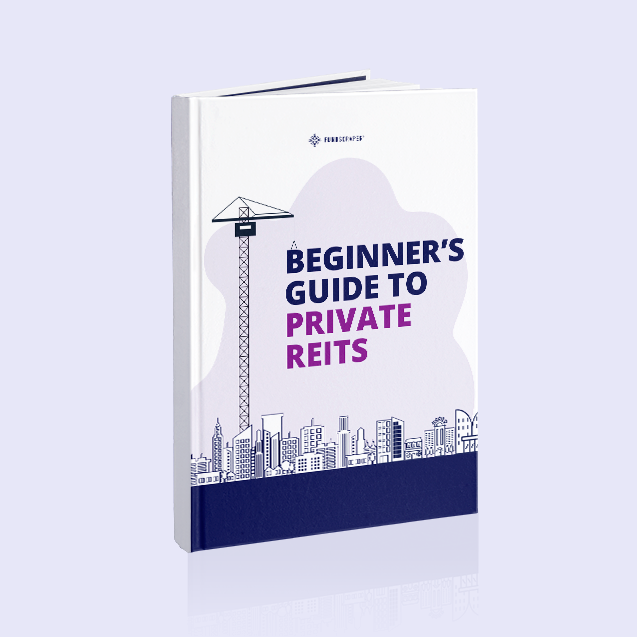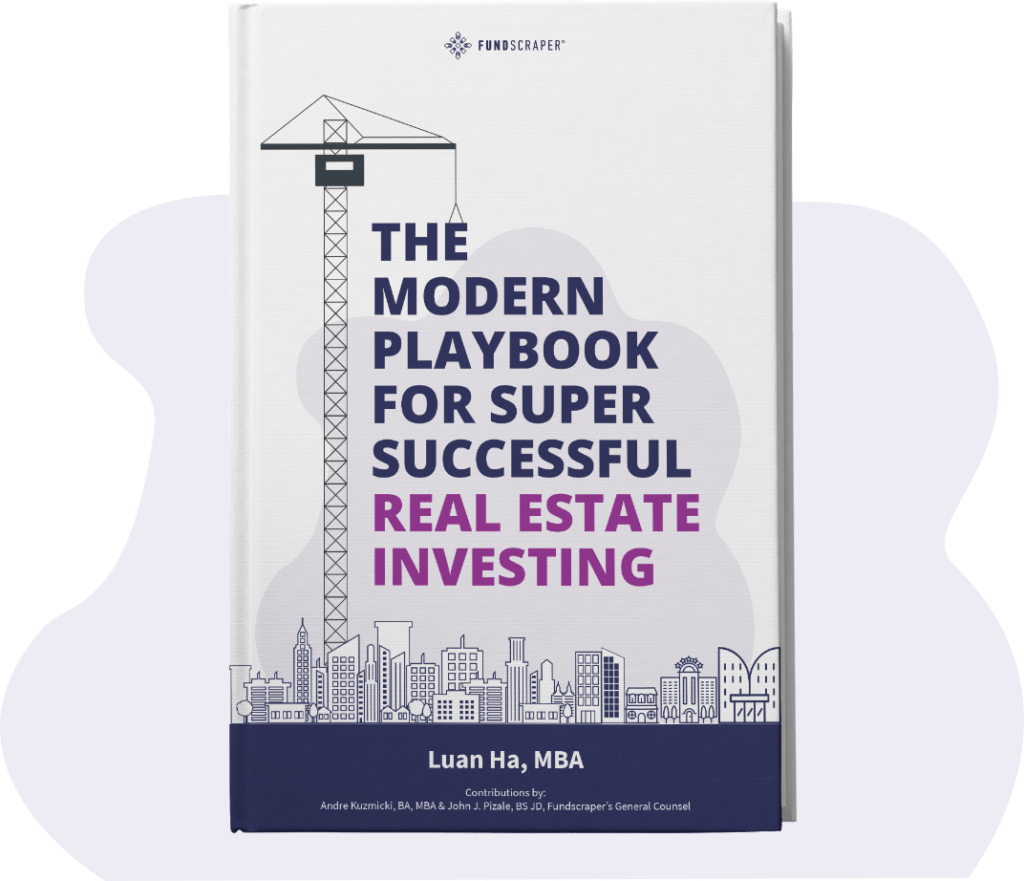If you’re considering real estate investment strategies such as direct property ownership and buying residential or commercial real estate properties, or you’re an experienced investor looking for further portfolio diversification, it’s a great time to consider alternatives such as investing in Real Estate Investment Trusts, or REITs.
REITs are an alternative way to invest into a portfolio of income producing real estate managed by real estate professionals. Investing in REITs can provide investors with regular cash flow in the form of distributions and potential for the underlying real estate owned by the REIT to appreciate in value.
With the relatively recent popularization of REITs, it’s now possible to invest in a large portfolio of real estate assets that give you similar benefits as direct investing and property ownership.
If you’re a Canadian investor or looking into how to invest in a REIT in Canada, this article will answer important questions such as “What is a REIT?” and “How does a REIT work in Canada?”
What is a REIT and How Does it Work?
So what is a REIT and how does it work in Canada? A REIT is a tax-efficient vehicle that gives people exposure to a diversified portfolio of income producing properties.
Essentially, that means a REIT is a type of investment that allows almost anyone to tap into the real estate market and indirectly own or finance properties.
REITs are companies that own real estate properties like apartment buildings, office buildings, and shopping centres.
When you invest in a REIT, you pool your money with other investors (known as ‘unitholders’) to become a part owner of the trust vehicle. As a unitholder, you’re entitled to the cash distributions derived from cash flow generated from the trust’s holdings of real estate.
Every month, you’ll receive passive income via distributions made by the trust, generated from the income such as rental income earned from the properties. You don’t have to be anyone’s landlord or make any property visits; just leave it to the professional management teams that manage the trust. The REIT portfolio is managed professionally, with the managers appointed by the trustees of the trust.
Investing in a REIT can allow you to invest with less capital upfront than purchasing a property outright, thus broadening the access for individuals to own larger assets that are more geographically diverse.
How to Buy a REIT
Buying REITs is different from buying and selling stocks. There are different types of REITs, such as Equity REITs where the majority of income is derived from collecting rent or property sales or Mortgage REITs where income comes from loan interest payments.
There are also publicly traded and private REITs. Public REIT units can be bought pretty much like shares of any other stock listed in the stock market. They can be bought as REIT mutual funds or exchange-traded funds (ETFs) through a broker.
Private REITs are sold to investors through specialized dealers in the exempt market like Fundscraper. Private REITs are not traded on a stock exchange, so there are transfer, redemption, and resale restrictions on those units. Thus, private investments are not as liquid as publicly traded investments.
Everyone’s investment preferences are different, but one of the main reasons investors prefer private REITs to public REITs is how their value is determined and the perceived stability of unit prices given typical lower correlation with the public capital markets.
The value of a private REIT is generally based on the intrinsic and appraised value of the properties they hold, whereas the value of a public REIT unit may be severely impacted by the volatility of the public stock market. It will go up and down based on market events and may not be driven by the underlying value of the properties the REIT holds in its portfolio.
There also may be a liquidity premium for being traded on a public exchange, or vice versa, a liquidity discount for units of a non-traded REIT.
Private REIT investments historically have a less volatile unit price, in part because units are not publicly traded. Most private REITs calculate and update their unit prices monthly or quarterly, whereas public REIT units values are real time based upon the unit price movement on the stock market.
Private REITs are a smart decision for some investors, but they’re not for everyone. Ultimately, it’s up to you to decide what investments are suited to your needs.
Fundscraper can help you evaluate private REIT opportunities posted on its platform and make suitability suggestions based on your income, goals, and risk appetite. Empowering investors to grow their wealth in real estate is our passion. We offer an experienced management team, rigorous due diligence process, and first-class service.
Investing in a REIT in Canada
REITs overall are relatively new. The first publicly traded REITs in Canada were formed in the early 1990’s.
Nobody expects you to have developed an expertise in how to value a REIT. That’s what we’re here to assist you with! Fundscraper is licensed as an exempt market dealer with the Ontario Securities Commission and various other provincial regulators across the country. We have certain duties to you, and we take our jobs very seriously.
It’s our duty to assess whether an investment through our platform is suitable for you. We arm you with knowledge, help highlight what key considerations can impact your decision, and empower you to make decisions that meet your own personal investor profile given various key risk factors.
If you are looking to evaluate a REIT, a great place to start is by looking for a firm that has a track record and is licensed by a regulatory body, like a securities commission. You should ask to review all the relevant documents, any offering memorandum, financial statements, and always always seek professional advice from your accountants, lawyers, or other financial advisors.
Here are a few basic things to start looking at when evaluating a private REIT.
- Acquisitions and Dispositions: Is the REIT growing their portfolio? Are they shrinking? Neither one of these is inherently good or bad, but it’s important to make note of and understand why they took those actions and how the REIT is executing on its growth strategy.
- Operating Margins: How are the operating margins performing compared against the peer group? Is management operating the portfolio efficiently relative to the competition? Operating margins is generally calculated as the Net Operating Income divided by the Gross Revenues.
- Distribution Yields (distribution per unit $ / price per unit): What they are paying out as distributions as a percent of the unit price is important to review over the course of time to be able to benchmark the comparative performance against other investment opportunities.
This metric is very tricky since a lower distribution yield might mean units are fairly priced and a high distribution yield might indicate a discounted unit price. It is important to see a consistent distribution on a total dollar basis (the numerator) and to understand why the unit price (denominator) is fairly valued or perceived to be riskier and thus discounted. - Growth Strategy and Management Track Record: Has the management team executed well on prior strategic plans and does the management team adequately assess and address the risks of such strategic plans or objectives?
Growth strategies don’t always have to be related to external acquisitions. Many private REITs implement value-add strategies to consistently upgrade assets, find new sources of ancillary income thus driving up rental income or make operations more efficient to reduce expenses.

Download our Beginner’s Guide to Private REITs
How to Start a REIT: Getting the Help You Need
Are you interested in learning how to start a REIT in Canada? Companies owning or financing real estate must meet a number of organizational, operational, distribution and compliance requirements to qualify as a real estate investment trust (REIT). These rules govern issues such as dividend income distributions and the composition of a company’s assets. Setting up a REIT is not simple but professional help is always available.
Fundscraper is your trusted capital, compliance and technology dealer. As an Exempt Market Dealer (EMD), we help investors, issuers, private lenders, mortgage brokers, and mortgage syndicators navigate the complex legal landscape, and remain compliant with Canadian Securities Laws.
Need any assistance with REITs in Canada? Talk to us today.






